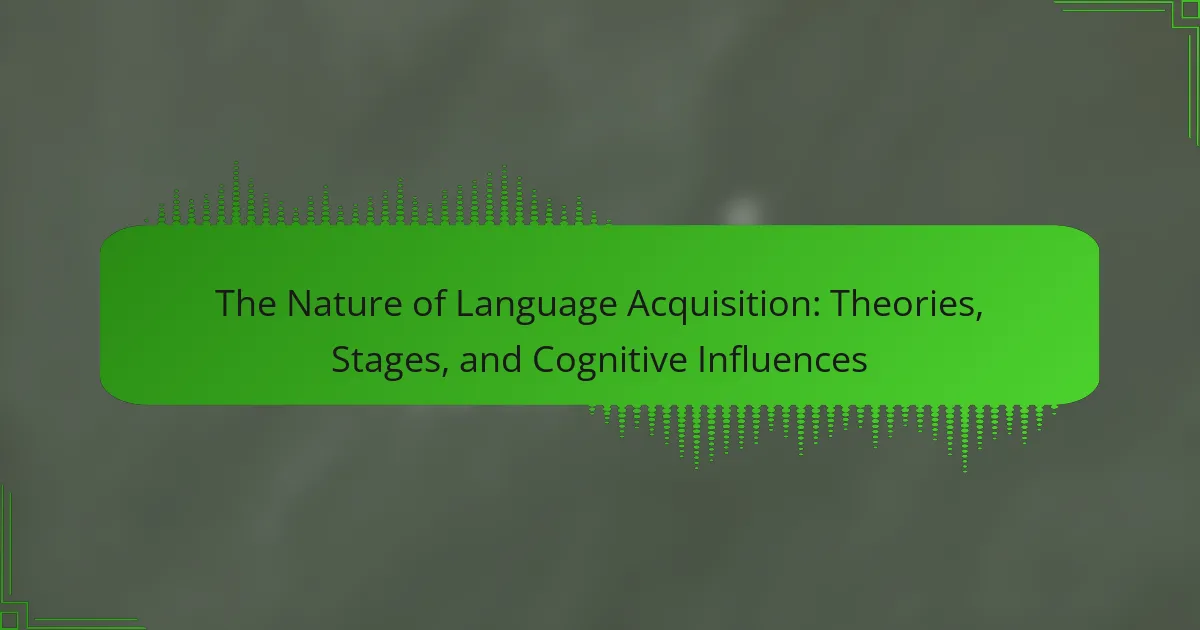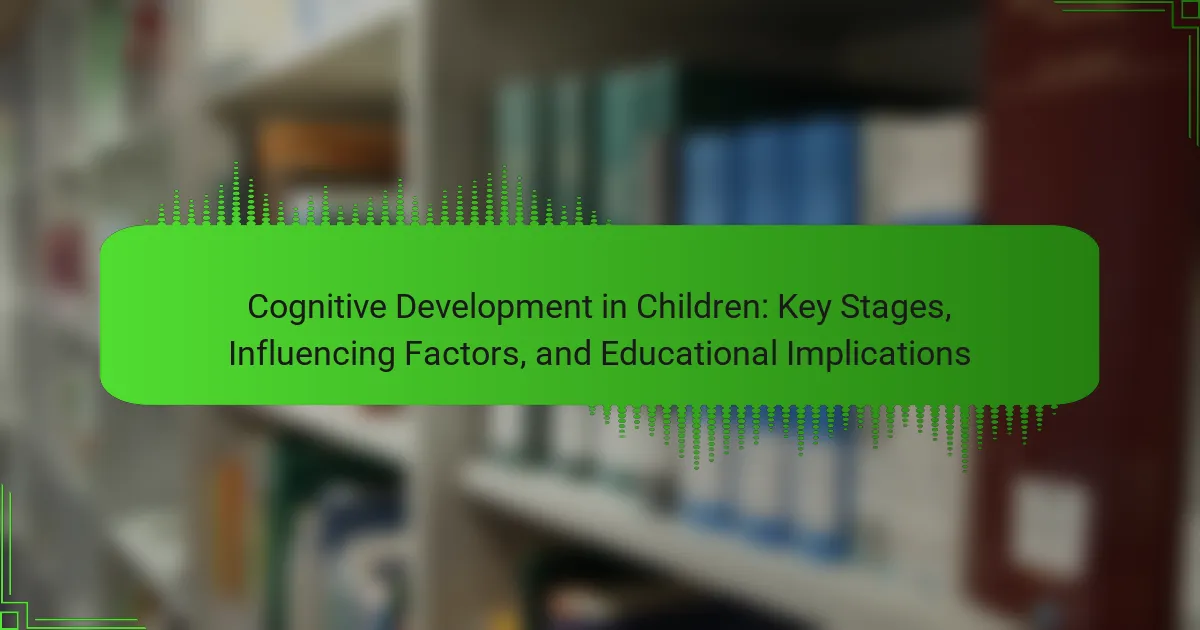Memory is the cognitive ability that encompasses encoding, storage, and retrieval of information, allowing individuals to retain experiences, knowledge, and skills. This article explores the different types of memory, including sensory memory, short-term memory, and long-term memory, and outlines the processes involved in memory formation. Key factors influencing memory recall, such as attention, emotional state, context, and the effects of sleep and retrieval practice, are examined. The role of the hippocampus in memory formation and the importance of effective encoding for successful retrieval are also highlighted, providing a comprehensive understanding of how memory functions and what affects its efficiency.

What is Memory?
Memory is the cognitive ability to encode, store, and retrieve information. It enables individuals to retain experiences, knowledge, and skills. Memory involves various processes, including sensory memory, short-term memory, and long-term memory. Sensory memory briefly holds information from the senses. Short-term memory allows for temporary storage and manipulation of information. Long-term memory involves the storage of information over extended periods. Research indicates that memory is crucial for learning and adaptation. Studies show that the brain’s hippocampus plays a vital role in forming new memories.
How does memory function in the human brain?
Memory functions in the human brain through a series of processes that involve encoding, storage, and retrieval. Encoding is the initial process of converting information into a form that can be stored. This often involves sensory input being transformed into neural codes. Storage refers to maintaining this encoded information over time. The brain uses different types of memory systems, such as short-term and long-term memory, to organize and retain information.
Retrieval is the process of accessing stored information when needed. It can be influenced by various factors, including cues and context. Neuroscientific research shows that specific brain structures, like the hippocampus, play a crucial role in forming new memories. Studies indicate that long-term potentiation, a process that strengthens synapses, is essential for memory formation. Overall, memory functions as an intricate interplay of these processes within the brain’s neural networks.
What are the key components of memory?
The key components of memory are encoding, storage, and retrieval. Encoding refers to the process of transforming information into a format that can be stored. Storage involves maintaining the encoded information over time. Retrieval is the act of accessing and bringing stored information back into consciousness. These components work together to enable memory formation and recall. Research shows that effective encoding enhances long-term retention. Studies indicate that retrieval practice improves memory performance by reinforcing connections.
How do neurons and synapses contribute to memory formation?
Neurons and synapses play a critical role in memory formation. Neurons are the fundamental units of the brain that transmit information. They communicate through synapses, which are the junctions between neurons. When a memory is formed, specific patterns of neuronal activity occur. This activity leads to the strengthening of synaptic connections, a process known as synaptic plasticity. Long-term potentiation (LTP) is a key mechanism in this process. LTP enhances synaptic strength following repeated stimulation of a synapse. Research has shown that LTP is essential for learning and memory. Studies indicate that disruptions in synaptic plasticity can impair memory formation. Thus, the interaction between neurons and synapses is vital for encoding and retrieving memories.
What are the different types of memory?
There are several types of memory, primarily categorized into sensory memory, short-term memory, and long-term memory. Sensory memory holds information from the senses for a brief moment. It captures visual and auditory stimuli, lasting only milliseconds. Short-term memory retains information for a limited duration, typically around 20 to 30 seconds. It can hold approximately 7 items at once, as suggested by Miller’s Law. Long-term memory stores information for extended periods, potentially a lifetime. It is further divided into explicit memory, which involves conscious recall, and implicit memory, which influences behavior without conscious awareness. Each type of memory plays a crucial role in how we process and recall information.
What distinguishes short-term memory from long-term memory?
Short-term memory and long-term memory differ primarily in duration and capacity. Short-term memory retains information for a brief period, typically around 20 to 30 seconds. It can hold approximately 7±2 items at once, according to Miller’s Law. Long-term memory, on the other hand, can store information indefinitely. Its capacity is essentially limitless, allowing for vast amounts of data retention. Research indicates that long-term memory involves processes such as consolidation, which strengthens memories over time. In contrast, short-term memory is more susceptible to interference and decay. These distinctions are critical for understanding how memory functions and how information is processed in the brain.
How do explicit and implicit memory differ?
Explicit memory involves conscious recall of information, while implicit memory does not require conscious awareness. Explicit memory includes facts and events that can be verbally articulated. Examples include remembering a friend’s birthday or recalling historical dates. Implicit memory involves skills and conditioned responses that are performed without conscious thought. For instance, riding a bicycle or typing on a keyboard utilizes implicit memory. Research indicates that explicit memory is often assessed through recall and recognition tasks, while implicit memory is evaluated using performance measures. This distinction highlights the different neural mechanisms involved in each type of memory.

What processes are involved in memory?
Memory involves encoding, storage, and retrieval processes. Encoding transforms sensory input into a form that can be stored. This can include visual, auditory, and semantic encoding. Storage refers to maintaining information over time. It can be short-term or long-term storage. Retrieval is the process of accessing stored information when needed. Each of these processes plays a crucial role in how we remember and recall information. Research indicates that effective encoding enhances retrieval success. For instance, studies show that deeper processing during encoding leads to better recall.
How is information encoded in memory?
Information is encoded in memory through processes that transform sensory input into a format suitable for storage. This encoding occurs in various forms, including visual, acoustic, and semantic. Visual encoding involves the use of images, while acoustic encoding relies on sound patterns. Semantic encoding focuses on the meaning of the information. Research indicates that semantic encoding is often the most effective for long-term retention. According to studies, information processed semantically leads to better recall compared to other forms. The brain regions involved in encoding include the hippocampus and the prefrontal cortex. These areas help organize and integrate new information with existing knowledge.
What role does attention play in encoding?
Attention is crucial for encoding information into memory. It selectively enhances certain stimuli while filtering out irrelevant details. This process allows the brain to focus on important information, making it more likely to be stored. Studies show that increased attention improves memory retention. For example, research indicates that individuals who pay close attention during learning tasks recall significantly more information later. Therefore, attention directly influences the effectiveness of encoding in memory processes.
How does the brain organize information during encoding?
The brain organizes information during encoding by using various processes to categorize and integrate new data. Encoding involves transforming sensory input into a format that can be stored in memory. The hippocampus plays a crucial role in this process, facilitating the transition from short-term to long-term memory. Additionally, the brain employs strategies like chunking, which groups information into manageable units, enhancing retention. Research shows that the organization of information is influenced by existing knowledge and schemas, allowing for better retrieval later. Studies indicate that meaningful connections enhance encoding efficiency, as seen in the work of Craik and Lockhart, who proposed the levels of processing framework.
What is the process of memory storage?
Memory storage is the process of encoding, storing, and retrieving information in the brain. It begins with encoding, where sensory input is transformed into a format suitable for storage. This is followed by storage, which involves maintaining the encoded information over time. The final step is retrieval, where stored information is accessed for use.
Memory storage occurs in different stages. Short-term memory holds information temporarily, while long-term memory stores information more permanently. Research indicates that the hippocampus plays a crucial role in transferring short-term memories to long-term storage. Additionally, consolidation processes strengthen memories, making them more stable over time.
Overall, the process of memory storage is essential for learning and adapting to experiences.
How does the duration of memory storage vary?
The duration of memory storage varies across different types of memory. Short-term memory typically lasts for about 15 to 30 seconds. In contrast, long-term memory can last from days to a lifetime. Factors such as rehearsal, emotional significance, and the complexity of the information can influence this duration. For instance, information that is frequently rehearsed is more likely to be transferred to long-term memory. Studies indicate that memories can be consolidated over time, enhancing their duration and accessibility.
What factors affect the strength of memory storage?
The strength of memory storage is affected by several factors. These include the emotional significance of the information. Strong emotions can enhance memory retention. The level of attention during the encoding process also plays a crucial role. Higher attention typically leads to better memory storage. Repetition and rehearsal of information strengthen memory traces. The context in which information is learned can influence recall. Familiar environments can improve memory retrieval. Additionally, the use of mnemonic devices aids in memory retention. Research indicates that sleep quality affects memory consolidation. Studies show that adequate sleep enhances the retention of newly learned information.
How is memory retrieved?
Memory is retrieved through a process involving cues and associations. The brain accesses stored information by using retrieval cues that trigger related memories. These cues can be external, such as environmental stimuli, or internal, like emotions. The process often involves reconstructing the memory rather than simply recalling it. Research shows that context plays a crucial role in retrieval effectiveness. For instance, being in the same environment where the memory was formed can enhance recall. This phenomenon is supported by studies demonstrating context-dependent memory effects.
What cues facilitate memory retrieval?
Cues that facilitate memory retrieval include contextual cues, emotional cues, and semantic cues. Contextual cues are environmental stimuli present during encoding. They help trigger memories when encountered later. Emotional cues relate to the feelings experienced during the original event. These feelings can enhance recall by creating a stronger association. Semantic cues are related to the meaning of the information. They aid retrieval by connecting related concepts. Research indicates that these cues significantly improve recall performance. For example, studies show that individuals remember information better when tested in the same environment where they learned it.
How does context influence recall?
Context significantly influences recall by providing cues that aid memory retrieval. When individuals learn information in a specific context, they are more likely to remember it when they encounter similar contextual cues later. This phenomenon is supported by the encoding specificity principle, which states that memory is enhanced when the conditions at retrieval match those at encoding. Research by Godden and Baddeley (1975) demonstrated this effect through experiments with divers. Divers who learned words underwater recalled them better when tested underwater compared to on land. This illustrates how environmental context can serve as a powerful retrieval cue, enhancing recall accuracy.

What factors influence memory recall?
Memory recall is influenced by several factors including attention, emotional state, and context. Attention affects how well information is encoded. Strong emotional states can enhance memory retention. Contextual cues, such as the environment during learning, can aid recall. The spacing effect shows that information is better recalled when studied over time rather than in a single session. Research indicates that retrieval practice, or actively recalling information, strengthens memory. Sleep also plays a crucial role in memory consolidation. Each of these factors has been studied extensively, confirming their impact on memory recall.
How do emotions impact memory recall?
Emotions significantly influence memory recall. Emotional experiences are often remembered more vividly than neutral ones. This is due to the activation of the amygdala, which processes emotions and enhances memory consolidation. Research indicates that emotionally charged memories are more likely to be retained over time. A study published in the journal “Emotion” by Kensinger (2009) found that negative and positive emotional stimuli lead to stronger memory recall. The heightened arousal associated with emotions aids in encoding memories more effectively. Thus, emotions play a crucial role in determining what we remember and how well we recall information.
What is the relationship between stress and memory recall?
Stress negatively impacts memory recall. High levels of stress can impair the brain’s ability to retrieve information. Cortisol, a stress hormone, affects the hippocampus, which is crucial for memory. Studies show that acute stress can reduce performance on memory tasks. In one study, participants under stress recalled fewer words from a list. Chronic stress is linked to long-term memory issues. This relationship highlights the importance of managing stress for optimal cognitive function.
How do positive emotions enhance memory retrieval?
Positive emotions enhance memory retrieval by improving the encoding and recall processes. Research indicates that positive emotions increase the likelihood of accessing memories. They activate brain regions associated with emotion, such as the amygdala. This activation strengthens the neural connections related to the memories. A study by Isen et al. (1987) demonstrated that participants in a positive mood recalled more items from a list. Additionally, positive emotions can broaden attention, allowing for more information to be processed. This broader focus leads to richer memory formation. Overall, the interplay between positive emotions and memory retrieval is well-supported by empirical evidence.
What role does aging play in memory recall?
Aging negatively impacts memory recall. As individuals age, cognitive functions, including memory, often decline. Research indicates that older adults experience slower processing speeds. This affects their ability to encode and retrieve memories effectively. Additionally, age-related changes in the brain, such as reduced hippocampal volume, contribute to memory difficulties. Studies show that older adults may struggle with working memory tasks. This decline can lead to challenges in recalling recent events or information. Overall, aging plays a significant role in diminishing memory recall abilities.
How does memory change as we age?
Memory changes as we age, often resulting in slower processing speeds and decreased recall ability. Older adults may experience difficulty in forming new memories. This decline can be attributed to structural changes in the brain, such as reduced volume in the hippocampus. Research shows that working memory capacity often diminishes with age. Additionally, older adults may struggle with multitasking and filtering out distractions. However, some types of memory, like vocabulary and general knowledge, tend to remain stable or even improve. These changes reflect normal aging processes and can vary widely among individuals.
What strategies can help improve memory in older adults?
Engaging in regular physical exercise can significantly improve memory in older adults. Exercise increases blood flow to the brain and promotes neurogenesis. Cognitive training exercises, such as puzzles and memory games, also enhance memory function. Social interactions are crucial as they stimulate cognitive processes and reduce feelings of isolation. A balanced diet rich in antioxidants, omega-3 fatty acids, and vitamins supports brain health. Adequate sleep is essential for memory consolidation and cognitive function. Mindfulness and meditation practices have been shown to improve focus and memory retention. Lastly, establishing a routine can help in organizing information and reducing cognitive load.
What are common memory improvement techniques?
Common memory improvement techniques include mnemonic devices, spaced repetition, and visualization. Mnemonic devices help in encoding information through associations. For example, acronyms can simplify complex information into memorable phrases. Spaced repetition involves reviewing information at increasing intervals. Research shows this technique enhances long-term retention. Visualization aids memory by creating mental images of concepts. Studies indicate that visual learners retain information better. Other techniques include chunking information into smaller units and practicing active recall. Active recall involves testing oneself on the material to reinforce memory. These methods are widely recognized for their effectiveness in enhancing memory performance.
How can mnemonic devices enhance memory retention?
Mnemonic devices enhance memory retention by providing structured techniques to encode information. These techniques simplify complex information into manageable forms. For example, acronyms condense phrases into memorable initials. Visualization techniques create vivid mental images associated with information. Rhymes and songs leverage auditory patterns to aid recall. Research indicates that using mnemonic devices can improve recall by up to 50%. This effectiveness is due to their ability to create strong associations in the brain. Such associations facilitate easier retrieval of information during recall tasks.
What lifestyle changes can support better memory recall?
Regular physical exercise can significantly improve memory recall. Exercise increases blood flow to the brain. This enhanced blood flow supports the growth of new brain cells. Engaging in aerobic activities, such as running or swimming, is particularly beneficial. Studies show that consistent exercise can improve cognitive function. A study published in the journal “Neuropsychology Review” found that aerobic exercise enhances memory performance.
Adequate sleep is essential for optimal memory function. Sleep plays a critical role in memory consolidation. Lack of sleep can impair cognitive abilities and recall. Research indicates that adults should aim for 7-9 hours of quality sleep per night.
A balanced diet rich in antioxidants supports brain health. Foods like berries, nuts, and leafy greens have protective effects on memory. Omega-3 fatty acids, found in fish, are also crucial for cognitive function. The Mediterranean diet has been linked to better memory performance in older adults.
Mindfulness practices, such as meditation, can enhance memory recall. Mindfulness reduces stress and improves focus. Research published in “Psychological Science” shows that mindfulness training can lead to improvements in working memory.
Social engagement is vital for maintaining cognitive health. Regular interaction with friends and family can stimulate brain activity. Studies suggest that socializing can decrease the risk of memory decline.
Incorporating these lifestyle changes can lead to better memory recall and overall cognitive health.
Memory is the cognitive ability to encode, store, and retrieve information, essential for learning and adaptation. This article explores the types of memory, including sensory, short-term, and long-term memory, along with the processes involved in memory formation, such as encoding, storage, and retrieval. Key components like the role of neurons and synapses, the influence of attention and emotions, and the impact of aging on memory recall are discussed. Additionally, it covers strategies for improving memory, including mnemonic devices and lifestyle changes that support cognitive function.



